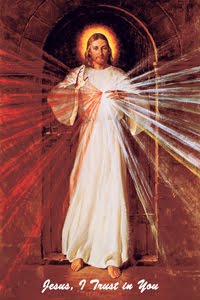ENTONCUBE
Powered by Blogger.
Saint Benedict Medal

Blog Archive
-
▼
2017
(40)
-
▼
January
(23)
- 2 Kings 9: 1 - 37
- 2 Kings 8: 1 - 29
- 2 Kings 7: 1 - 20
- 2 Kings 6: 1 - 33
- 2 Kings 5: 1 - 27
- 2 Kings 4: 1 - 44
- 2 Kings 3: 1 - 27
- 2 Kings 2: 1 - 25
- 2 Kings 1: 1 - 18
- 1 Kings 22: 1 - 53
- 1 Kings 21: 1 - 29
- 1 Kings 20: 1 - 43
- 1 Kings 19: 1 - 21
- 1 Kings 18: 1 - 46
- 1 Kings 17: 1 - 24
- 1 Kings 16: 1 - 34
- 1 Kings 15: 1 - 34
- 1 Kings 14: 1 - 31
- 1 Kings 13: 1 - 34
- 1 Kings 12: 1 - 33
- 1 Kings 11: 1 - 43
- 1 Kings 10: 1 - 29
- 1 Kings 9: 1 - 28
-
▼
January
(23)
Labels
Labels
Abbreviation
Old Testament:
Gn = Genesis
Ex = Exodus
Lev = Leviticus
Num = Numbers
Deut = Deuteronomy
Jos = Joshua
Judg = Judges
Ruth = Ruth
1Sam = 1 Samuel
2Sam = 2 Samuel
1Kgs = 1 Kings
2Kgs = 2 Kings
1Chr = 1 Chronicles
2Chr = 2 Chronicles
Ezr = Ezra
Neh = Nehemiah
Tob = Tobit
Jud = Judith
Est = Esther
Job = Job
Ps = Psalms
Prov = Proverbs
Eccles = Ecclesiastes
Song = Song of Solomon
Wis = Wisdom of Solomon
Sir = Sirach
Is = Isaiah
Jer = Jeremiah
Lam = Lamentations
Bar = Baruch
Ez = Ezekiel
Dn = Daniel
Hos = Hosea
Jl = Joel
Amo = Amos
Obad = Obadiah
Jon = Jonah
Mic = Micah
Nah = Nahum
Hab = Habakkuk
Zeph = Zephaniah
Mal = Malachi
1Mac = 1 Maccabees
2Mac = 2 Maccabees
New Testament:
Mt = Mathew
Mk = Mark
Lk = Luke
Jn = John
Acts = Acts of the Apostles
Rm = Romans
1Cor = 1 Corinthians
2Cor = 2 Corinthians
Gal = Galatians
Eph = Ephesians
Phil = Philippians
Col = Colossians
1Thes = 1 Thessalonians
2Thes = 2 Thessalonians
1Tim = 1 Timothy
2Tim = 2 Timothy
Tit = Titus
Philem = Philemon
Heb = Hebrews
Jas = James
1Pt = 1 Peter
2Pt = 2 Peter
1Jn = 1 John
2Jn = 2 John
3Jn = 3 John
Jude = Jude
Rev = Revelation
Labels
Non Profit Blog






Blogger Comment
Facebook Comment